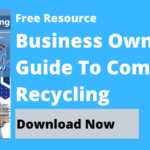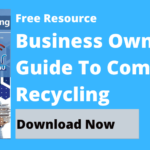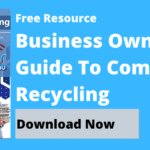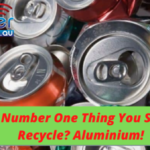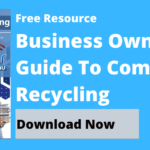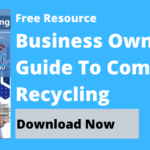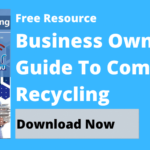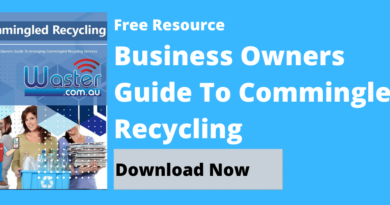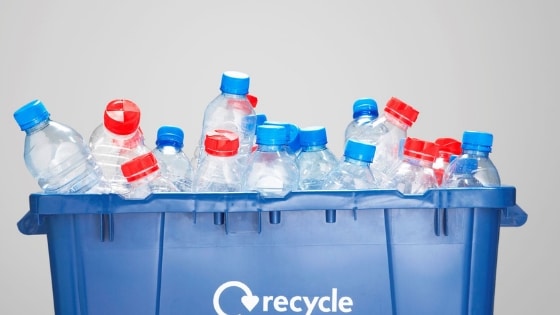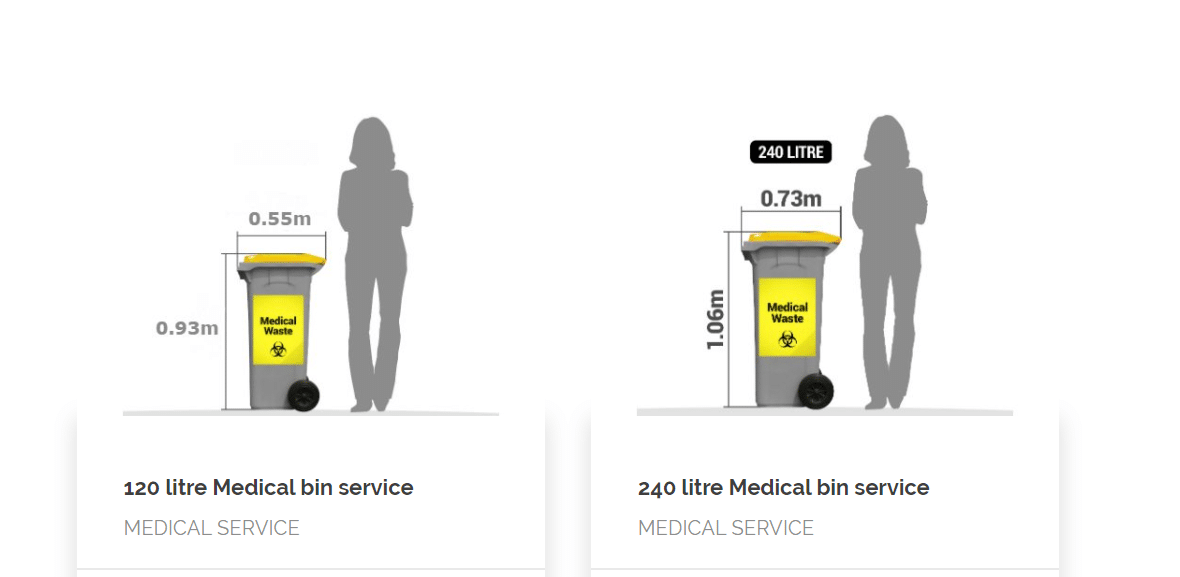RedCycle Collapse ♻️ Podcast Ep. 41 Don’t Be A Waster
Energy Disrupter
RedCycle Collapse ♻️ Podcast Ep. 41 Don’t Be A Waster
Listen on Apple Podcasts Listen on Spotify Listen on Google Podcasts Listen on Stitcher Listen on Amazon Music
Transcript: RedCycle Collapse
RedCycle Collapse ♻️: Hello and welcome to another edition of Recycle: Don’t Be A Waster, your favourite podcast! At least, I’d like to believe so, on all things recycling and environmental-related. In today’s episode, we are going to cover, I think and I suppose, there’s no other way of describing it. It’s a fiasco. It really is the sort of stuff that gives recycling a bad name and leads credence to the whole “Recycling is a con!” “Recycling is not real!” that, you know, that sort of stuff.
That is, of course, the RedCycle collapse – the collapse of RedCycle. I’m reading an article here in the Guardian, so that means it must be true. A joke, but it’s a rapid newspaper – Friday the 3rd of February, so just last week, saying that supermarket giants Coles and Woolworths have been ordered to dump more than 5,200 tonnes of soft plastic, which is currently at warehouses across New South Wales. They’re ordered by the EPA to get rid of it.
>Download Now: Free PDF Business Owners Guide To Commingled Recycling Bin Services
They’re helping to give a couple of options as to how they can get rid of it. They can either, I think it’s… dump it in landfill, recycle it or export it. So in theory, the EPA doesn’t really care as long as the problem disappears. The problem seems to stem from the fact that this material is being stored in what is described as unsafe facilities or unsafe manners to the point where it could fundamentally go on fire.
Act 2: RedCycle Collapse
Why do they go on fire? Like, I suppose the fundamental reason is when you’re storing products made out of petrochemicals that are incredibly calorific and burn extremely easily, you know sooner or later that these things will go on fire, so storing immense volumes of the product. So 5,200 metric tonnes is pretty unbelievable.
So, of the 15 locations, 11 are such a concern that the EPA has notified fire and rescue New South Wales and it requested the operators take immediate action to mitigate this. The cost alone of removing the soft plastic is estimated to be 3.5 million dollars. I assume that is the cost of dumping it, which, you know, in New South Wales, dumping is roughly 300 to 50… 350 dollars a tonne to dump it in landfill. So would that make sense? Would it… does that broadly make sense?
I haven’t got a calculator with me, but it’s in the ballpark, I suppose. So that’s the scenario, and of course, we have politicians and different people crowding in and casting blame, you know, doing what they usually do. So the EPA chief executive Tony Chappelle said thousands of customers had diligently collected soft plastics and dropped them off at local supermarkets because they trusted their waste will be diverted from landfill and recycled, you know, stating the obvious there Tony.
Act 3: RedCycle Collapse
And obviously, the EPA doesn’t see potentially that they have any role in building ensuring there’s, you know, the semi-state or government agencies don’t feel they have a role in ensuring that there are facilities available. So, you know, I suppose, look, if you listen to any of our podcasts, you will, I think, know some of our views on this.
I think what we were doing was looking somewhere. Let’s look at this in a positive light – every cloud has a silver lining and even though it may be difficult to see the lining on this one, the silver lining on this dark cloud, clearly there is one. I think we were kidding ourselves for years, I think. Society, government, state governments, federal governments and obviously, industry and, you know, retail as well – we’re kidding ourselves.
We were giving away a free or cheap plastic bags and making ourselves feel better that they were being recycled because this program existed, called RedCycle, which magically turned them into utterly unsellable products such as park furniture and flooring, stuff like that could only be given away.
Act 4: RedCycle Collapse
So clearly, there was no commercial market for this, but it provided a real commercial benefit, I suppose, to people who, you know, shoppers who wanted to feel better about using their plastic bags and to people who produce them and use them such as the big retail chains, supermarkets etc.
But you know, I suppose, you’re looking at that. So basically, the EPA is saying dump it in landfill, which is like… just absolutely… it’s the definition of burying the problem to shipping it overseas. I have no idea who would be interested in taking this stuff unless you paid them a significant sum, quite possibly close to the 3.5 million dollars mentioned.
And then they’d probably, I don’t know, incinerate it? Or recycling it, which, let’s be honest, that option is not available at this point because we’ve been pretending that for quite a long enough. So I think this all stems back to what we’ve covered in the past. Plastic bags are probably one of the lowest grades of plastic available.
Act 5: RedCycle Collapse
Plastic degrades. And what is used to make plastic bags are all… already very low quality. The opportunity to recycle them is extremely low. You will need to add significant amounts of virgin plastic or new plastic to make them into any usable product. You can’t upcycle them into a better… higher-quality plastic product. And so fundamentally, you’re talking about, you know, junk that you’re trying to justify – a reason to use such as putting into roads or flooring, or insulation, stuff like that.
So, what, you know, there is obviously the big elephant in the room that potentially could be used. And it’s being used in places such as Japan and Sweden, etc. And that is incineration. We can clearly see from this that we’re… we seeing… we can see that this stuff is combustible, that it’s a health hazard, it’s a danger to society.
Even just storing the stuff so it wouldn’t take much to actually burn it in a controlled environment and actually release the energy. When you’re looking between the options of shipping it overseas to someone who’s willing to take it and be… which would obviously, would you take a lot of carbon emissions if that’s the method we’re using to measure the right outcome? Or, if we’re looking at dumping in a landfill, which clearly is a terrible outcome. It will disintegrate. It will, over time, emit gases, which some would be captured, of course, by carbon gas capture methods at the landfill.
Act 6: RedCycle Collapse
But clearly, that’s not exactly an optimal system. Clearly, consideration to my mind, in a modern plant as in, you know, that exists in foreign countries would clearly be a preferable option, especially at the moment. We’ve extremely high, you know, electricity prices. The other thing, I would say, is we have this absolute, you know, reversal to burning this stuff because of some environmental reasons.
But like, you know, we’re probably reading our computers. We’re probably reading, you know, our lights are burning. And they’re being burned, fundamentally, by burning oil. We’re burning coal. And we’re burning gas. We’re moving through more renewable energies. But at the same time, Australia still relies to a large extent on carbon fuels.
So, you know, I think our view is very clear. We need to reduce plastics. We need to. And we have taken steps in this. Credit where credit is due, but we need to really reduce the usage of this junk plastic wherever use as possible. And like, let’s be honest, we survived for a long time without plastic shopping bags at the supermarket. And so we can survive a long time more.
Act 7: RedCycle Collapse
I was speaking to somebody recently who works in consumer foods – food packagings such as crisps, and chips. That’s what stuff. They told me that you could just as well pack crisper chips in a paper packet. I’m not fully certain if that’s accurate, but it’s something, I think, we’ll look at in a future podcast.
But the only real reason for plastic was to look and feel that people like it gives a mark of quality. And of course, plastic is easy to colour which makes it look very attractive to consumers. So, you know, I think, again, like, let’s be honest, will we, as a society, learn from this fiasco? We learned some things, I think.
What we will probably do is we will probably increase the… accelerate…. the decrease in the use of plastics, you know. We’re already buying a lot of single-use plastics in many Australian states and territories, which is great news. And I think, fundamentally, we will continue doing that. I am personally very surprised that there is still just… every supermarket still has plastic bags and most people are, you know, we do reuse them.
Act 8: RedCycle Collapse
That has increased, for sure. But people are definitely still just, you know, not thinking about grabbing that plastic bag at the supermarket. And you know, I think, that has to be something we have to address, you know, moving forward. I think that has to be one of the first targets to put in perspective. The volume of this, you know, this 5.2 megatonnes. I’m not sure what that is, 5,200 tonnes, I think.
It describes the fitting, filling three Olympic swimming pools. So, it’s a very sizable amount of plastic product and it’s something clearly we want to avoid in the future. But if we don’t, you know, let’s be honest, the recycling there isn’t enough demand in the market to potentially to create enough – flooring insulation, park furniture. That sort of stuff there just simply isn’t enough demand.
So, no matter what, even if we built the best recycling facilities and put millions of dollars into them, the product you make, there’s no demand then there’ no offtake or forward. So the logical answer is, you know, not to do that. The logical answer is to massively reduce the amount of plastic product that we’re of past plastic waste we’re creating.
Act 9: RedCycle Collapse
So that… that’s step A, by either banning it, by restricting it, by reducing it, you know, alternative – bringing in alternatives. That has to be number one. And then, of course, my view would be in it – build modern incineration plants. And they don’t have to be in cities. They could be out in the middle of nowhere, where we can minimise any environmental impact and incinerate for energy.
So, we then… we’ll use less coal, less gas and help us A. it won’t go to landfill B. it’s the best of bad outcomes and C. you know, its carbon neutral because you’re displacing other carbon that you would have burned otherwise. So. like, that to me, it seems like a no-brainer. I think the big handicap here or the big hurdle that we’re looking at is clearly political. Is it politically feasible?
I think a lot of people wanted to believe in the RedCycle story. I liked it. It gave us… gave everyone a feel-good, you know. You could feel good about just dropping off your plastics. It was everywhere in the country at every Coles and Woolies. So it was super easy – super, super visible – and it made people feel good.
Act 10: RedCycle Collapse
Sometimes, when things make people feel good, they want to hang on to them and cling onto them and not examine them too much. But I think, you know, thankfully, that boat has sailed. I think, you know, the unsustainable nature of that program which potentially could argue was greencycling or uh… greenwashing, I think, is the term.
And when I say greenwashing, I’m not accusing anybody of anything untoward but I think we all did it to ourselves. We all greenwashed ourselves and felt a little bit better about the waste that we produced. So I think we all need to, you know, be realistic and know the facts, know where thw waste is going. And I think that applies to the EPA, applies to the state government, the federal government and the companies.
You know, there’s a chain of custody and all these things, from the manufacturer to the retailer, to the consumer. And I think we all need to, you know, actually, discuss the reality of stuff and rather than hide behind, you know, 20-year plans or 10-year plans that sometimes are built on shifting sands or it could be a mirage even where the starting position.
Act 11: RedCycle Collapse
So, you know, I think the silver lining is knowing the truth is always good. The truth is a great thing to the reality to know where you’re coming from, to know where you’re going. I think that gives us much more clarity so we can actually, you know, get the right result because, I suppose, what is the right result?
Is the object… the outcome is what we all care about. It’s carbon emissions, it’s, you know, reducing waste to landfill. That’s what we care about rather than trekking ourselves along the journey. So yeah, I’ll be interested to hear your feedback, as always. Happy New Year! I think this is our first podcast of 2023, and so I say Happy New Year to all our listeners.
I hope it’s a green and wonderful, you know, prosperous green Happy and healthy New Year for everyone. So, thanks again – Recycle: Don’t be a Waster!



